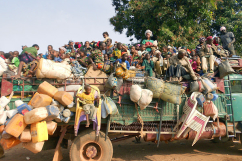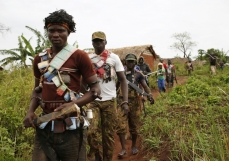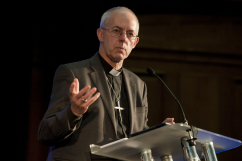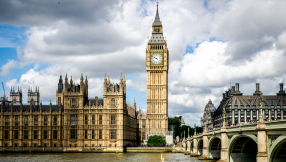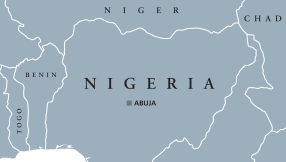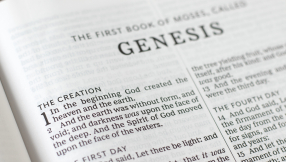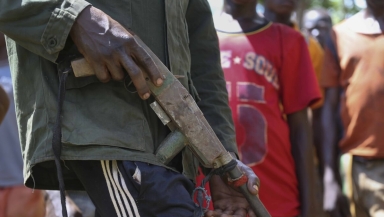
Having been forced to flee the Central African Republic (CAR) amid sectarian violence, Muslims returning to the country are now being forced to convert to Christianity under threat of being killed, Amnesty International said today.
In a report titled 'Erased Identity: Muslims in ethnically-cleansed areas of the Central African Republic, the NGO claims that the majority of Muslims have left the western region of the country following a wave of ethnic cleansing in early 2014.
CAR has been beset by violence since the majority-Muslim Séléka drove out President Francois Bozizé in a coup in March 2013. Though the group has since disbanded, they continued to target towns and villages across the country, which caused the uprising of an opposing Christian faction, the Anti-Balaka. Tens of thousands of Muslims were violently expelled, many fleeing to neighbouring countries.
Both groups have only loose ties with their religious affiliations, however, and Muslim and Christian leaders from CAR have united to condemn the conflict.
Despite this, witnesses told Amnesty that some of those operating under the Anti-Balaka name have been forcing followers of Islam to convert to Christianity.
"We had no choice but to join the Catholic Church. The Anti-Balaka swore they'd kill us if we didn't," one 23-year-old man said.
According to Amnesty, Muslims in western CAR who live outside the protection of UN peacekeepers are effectively prohibited from practising their faith publicly. They cannot wear Muslim clothing, or rebuild mosques destroyed during the violence. They are even forced to pray in secret.
"It is effectively illegal for us to pray," said a Muslim trader in Mbaiki.
"We have to hide, do it quickly, and do it by ourselves. Collective Friday prayers are impossible."

"Often they dare not even speak their preferred language within hearing range of others," the Amnesty report added. "Although members of the larger community may be aware that they are Muslim, their religion has been made invisible."
Amnesty has called for greater protection for Muslims living in the region, and the redoubling of efforts to help those returning to reintegrate into their communities.
"Many of the tens of thousands of Muslim refugees who were expelled from the country in 2014 would one day like to return home, but are waiting until they can do so in a safe and sustainable manner," Amnesty said.
"The fate of Muslims who have sought to reintegrate back into towns and villages in western CAR may determine whether or not many feel able to do so. Their security, freedom of religion, and other rights must be protected."











